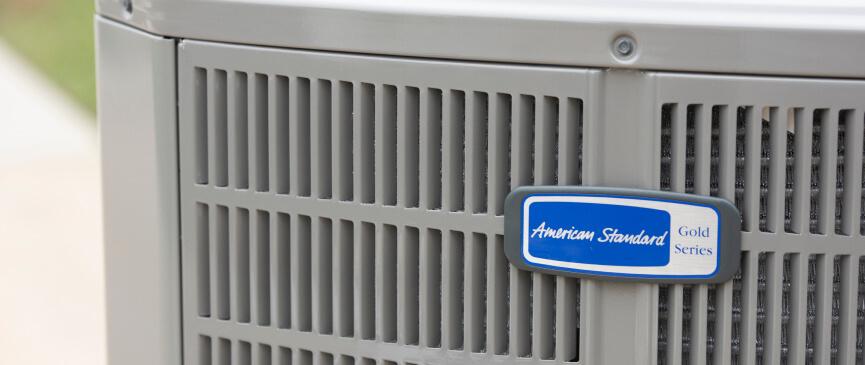Understanding DOE Efficiency Standards for Your Home HVAC System
Did you know that the region you live in can impact the HVAC products available to you?
Did you know that the region you live in can impact the HVAC products available to you?
This is because the U.S. Department of Energy (DOE) has set minimum energy efficiency standards for appliances and equipment used in homes, including air conditioners and heat pumps. These standards are good news because they help homeowners save money on energy bills and promote energy conservation. In fact, a 2017 report from the Consumer Federation of America found that these standards have saved consumers over $1 trillion dollars!
Efficiency Standards for Your New HVAC System
When buying a new HVAC system, it's important to consider these minimum energy efficiency standards, as they can impact which air conditioners and heat pumps are available to you based on your region. Even if a company carries products with lower energy efficiency ratings, they may not be able to sell those products in certain regions of the U.S.
The following map illustrates the regional efficiency standards for AC units in the North, Southeast, and Southwest regions of the United States:

Geographical regions are important because they have different energy efficiency standards based on the climate needs of customers living there. For instance, people living in southern climates use their air conditioners more frequently and require more energy-efficient systems. Therefore, the efficiency standards for split system air conditioners, heat pumps, and single-package systems may vary depending on your geographical region and HVAC needs.
Recent Energy Rating Changes
The DOE enacted new minimum efficiency requirements for residential and commercial HVAC equipment manufactured on or after January 1, 2023. These new regulations are designed to support ongoing efforts to reduce energy consumption in the United States.
Minimum Efficiency Standards Based on Region
The 2023 system efficiency minimums may vary depending on the product type and, in certain cases, the system-rated capacity.
Northern Region
Below is a chart detailing the regional standards for ducted and ductless split system air conditioners, split system heat pumps, single-packaged air conditioners, and single-packaged heat pumps in the northern region. All products manufactured before January 1, 2023, can be installed on or after that date.

Southwestern Region
The table below illustrates the regional standards for ducted and ductless split system air conditioners, split system heat pumps, single-packaged air conditioners, and single-packaged heat pumps in the southwestern region.
Please note that split air conditioners that do not meet the new 2023 M1 Standards will not be permitted for installation on or after January 1, 2023. However, split heat pumps and single-packaged products manufactured before January 1, 2023, may still be installed after that date.

Southeastern Region
Refer to the table below for the regional standards for ducted and ductless split system air conditioners, split system heat pumps, single-packaged air conditioners, and single-packaged heat pumps in the southeastern region.
Please note that starting from January 1, 2023, split air conditioners that do not meet the new 2023 M1 Standards will not be permitted for installation. However, split heat pumps and single-packaged products manufactured before January 1, 2023, may still be installed after that date.

The Takeaway: Inquire About Efficiency Standards
To ensure that the equipment recommended by your dealer meets your region's requirements, always ask about the SEER2, EER2, and HSPF2 ratings. It's unlawful for them to sell you a new system that falls below these standards. Working with your local American Standard dealer will guarantee that your new central air or heat pump system meets the minimum standards for your region, and you'll have a diverse selection of energy-efficient systems to choose from.
For additional information on requirements for all appliances, lighting, and equipment, including ENERGY STAR qualified appliances and tips for constructing an energy-efficient home, you can refer to the Environmental and Energy Study Institute's report.
FER Standards for Furnaces Announced by DOE
Before purchasing, it's important to be aware that the Department of Energy has set efficiency standards for furnaces. The Fan Energy Rating (FER) creates a minimum airflow efficiency standard for residential furnace fans. Furnaces can no longer be manufactured unless they meet the minimum efficiencies as of July 3, 2019. These standards encourage energy efficiency and environmental protection.
Why are FER Standards significant?
The aim of creating FER energy standards is to reduce energy consumption, lower the amount spent on energy bills, and decrease carbon pollution. Implementation could eventually reduce energy bills by more than 40%. The DOE anticipates the FER standards will achieve the following:
- Save roughly 3.99 quads of energy over time
- Cut carbon pollution by up to 34 million metric tons (equivalent to the electricity use of 4.7 million homes)
- Save Americans more than $9 billion in home electric bills through 2030
How is American Standard Responding to the DOE Standards?
As a leader in energy efficiency and HVAC innovation, American Standard furnaces already meet or exceed FER standards. However, American Standard has committed to making changes to our line of furnace products to increase efficiency, including:
- Upgrading motor technology from PSC to ECM.
- Introducing new furnace models that meet the FER standard. Ask your dealer for information on available models in your area.
- Discontinuing models that don't meet the updated standard.
Talk to Your Local HVAC Expert
It's always a good idea to talk to a local HVAC expert before making any decisions about your home's heating and cooling system. At American Standard, we are dedicated to providing energy-efficient solutions and reducing our customers’ carbon footprint through continuous innovation in our products and practices. We work closely with our partners to promote high-efficiency and connected systems and to educate and support homeowners in making responsible, efficient choices. To learn more about DOE energy regulations and what HVAC product is best for you, contact your local American Standard technician today.



